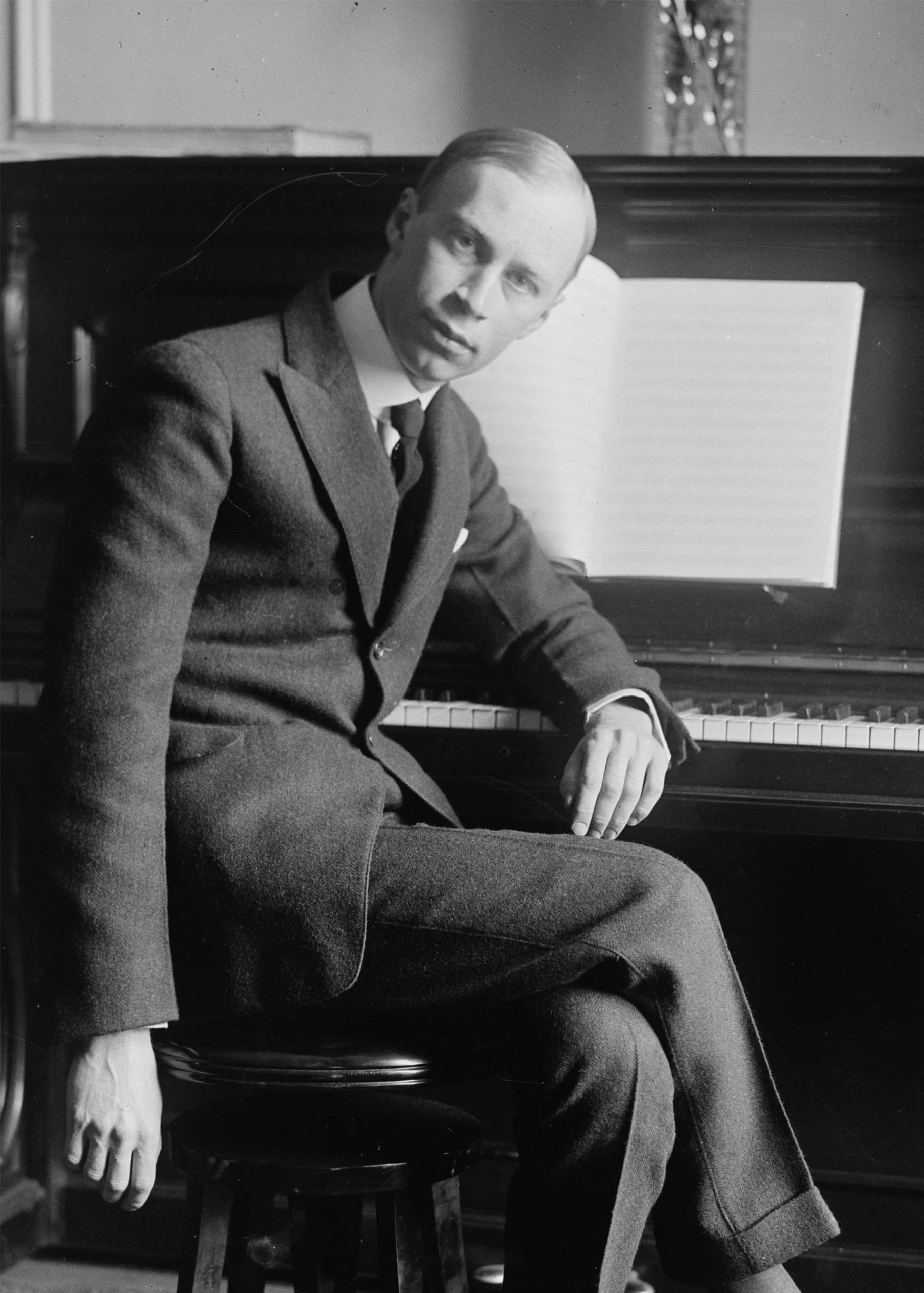Composer | Sergei Prokofiev

Sergei Prokofiev entered the St. Petersburg Conservatory at 13. After his 1909 graduation, he traveled to Paris and London, impressed Diaghilev, but apart from a short trip to Rome, where he conferred with the impresario and met Stravinsky, he spent World War I in Russia. After the Revolution, he left for the USA and Western Europe, where he wrote the ballets Chout (1920), Le Pas d’Acier (1927), and Prodigal Son (1929) for the Ballets Russes, and the second, third, and fourth symphonies, while both his opera The Love for Three Oranges (1921) and the popular 3rd Piano Concerto (1931) were first heard in Chicago.
In 1936, Prokofiev returned to the Soviet Union, where his work was initially approved by the Stalinist regime. His work included film scores with Eisenstein (Alexander Nevsky, which he reworked as an oratorio, and Ivan the Terrible), the ballets Romeo & Juliet and Cinderella, four operas, including War and Peace, symphonies, concertos, and orchestral works. After 1948, when his music and that of Shostakovich were denounced as “marked with Formalist perversions,” Prokofiev continued composing, despite ill health and severe financial straits, until his death in 1953, ironically on the same day as Stalin.